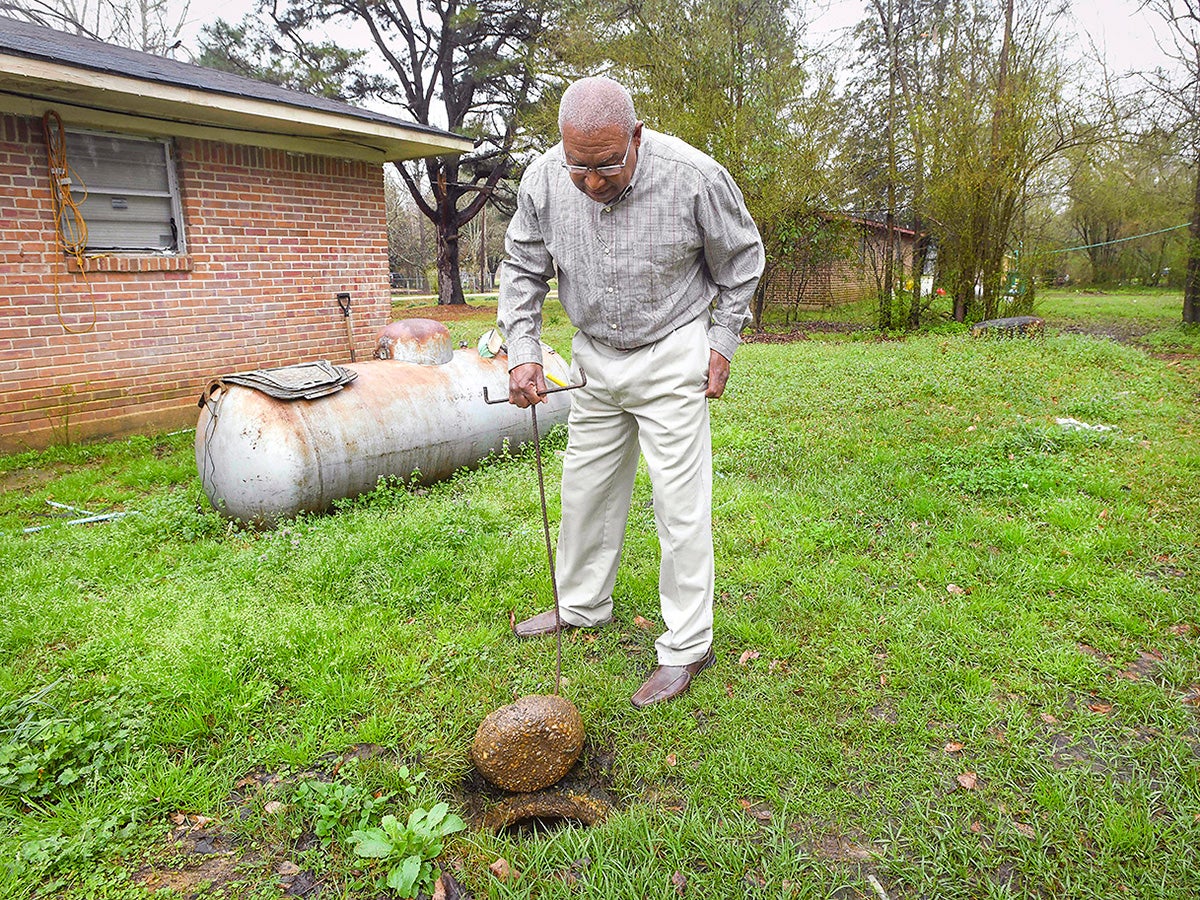Earthjustice goes to court for our planet.
We’re here because the earth needs a good lawyer.
In First, Justice Department Opens Environmental Justice Investigation
This page was published 4 years ago. Find the latest on Earthjustice’s work.
In Lowndes County, Alabama, over a third of residents tested positive for hookworm — a parasite long-thought eradicated — in a 2017 study. The cause? Exposure to human waste from faulty sewage lines. But instead of fixing the problem, the county health department lied to residents about the study, denying the presence of hookworm altogether.
Now, the county and state are the subject of a groundbreaking federal civil rights investigation. Earthjustice and our local partners have been pushing for such government action for years. We use the power of the law to ensure that clean water is a right for all, not a privilege.
The Department of Justice and the Department of Health and Human Services are investigating whether Lowndes County — and potentially the state of Alabama — are managing sewage and the infectious disease and outbreaks program in a way that disproportionately harms Black communities.
- Black residents make up 73% of Lowndes County, yet their median income is only $21,686 — compared to double that for white households.
- Proper sewage systems are expensive and difficult to obtain in Alabama’s Black Belt, due to its hard, clay-like soil (once prized for growing cotton). Low-income residents rely on PVC pipes that carry human waste to open trenches, which overflow during heavy rains.
- The county makes it a misdemeanor to use such survival measures, charging a $500 fine and jail time.
- The state has a track record of prosecuting only Black residents for sewage violations, in essence punishing them for lacking access to wastewater services.
This is the first time the Justice Department has opened an investigation to uphold environmental justice.
- Under Title VI of the Civil Rights Act, agencies receiving federal money cannot discriminate on the basis of race, color, or national origin. Discrimination includes any decision that has an unequal impact.
- Both the state of Alabama and Lowndes County receive money from the Justice Department.
- In addition to being its first environmental justice case, the Justice Department has never before investigated one of its own grant recipients for illegally discriminating on the basis of race.
Earthjustice and local civil rights advocates have been pushing the federal government to hold the state accountable.
- In 2018, Earthjustice filed a Title VI civil rights complaint against Lowndes County and the state of Alabama on behalf of the Center for Rural Enterprise and Environmental Justice (CREEJ). The complaint alleges that both agencies discriminated against Black residents by mismanaging their sewage disposal program and denying a credible hookworm outbreak.
- Catherine Flowers, who founded CREEJ and sits on the White House Environmental Justice Advisory Council, says the sewage problems in Lowndes are another form of racial oppression for Black residents.
- “Sanitation inequality is one of the last vestiges of the Confederacy,” says Flowers. “I am happy to know that the people of Lowndes County will be heard and hopefully will receive justice.”
Another piece of the solution will be passing the Build Back Better Act, which includes money to fix the country’s broken sewage systems.
- If passed, the bill would allocate $150 million for the repair and replacement of sewage systems in rural and low-income counties.
- The money is badly needed in Alabama, where the state Department of Public Health estimates that 40% to 90% of homes have inadequate or no septic system.
- Tell your members of Congress to support the Build Back Better Act to invest in a sustainable and just future.
